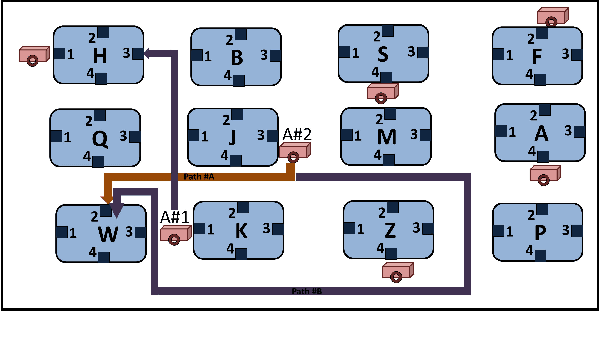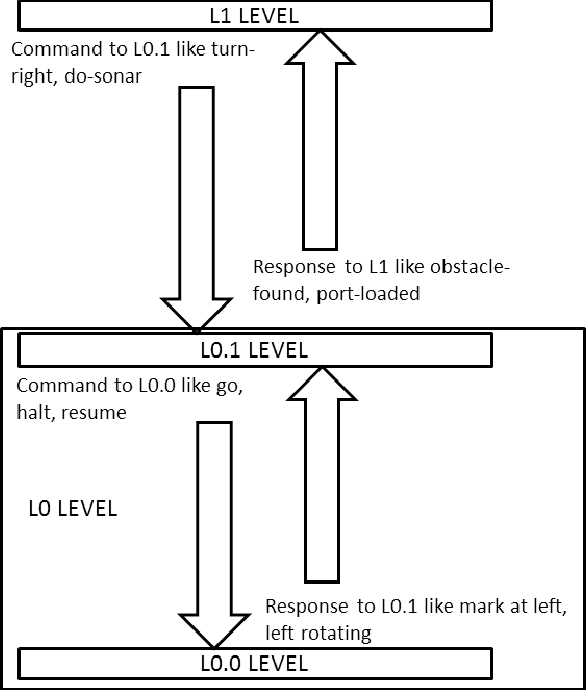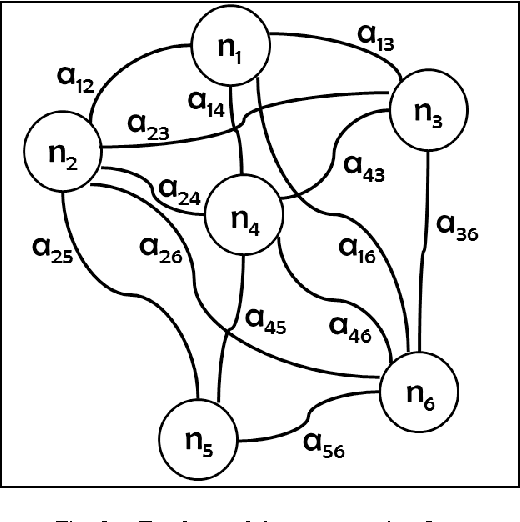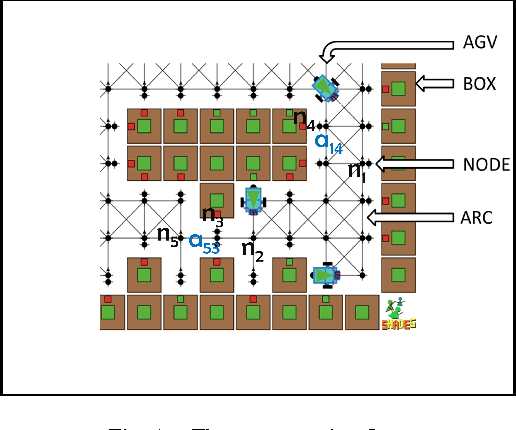Pragna Das
A Study of Time-varying Cost Parameter Estimation Methods in Automated Transportation Systems based on Mobile Robots
Aug 23, 2018



Abstract:Control of systems of automated guided vehicles involves action planning at many levels. For efficient control of these systems, accurate estimation of cost parameters (speed, energy, task completion performance, \textit{et~cetera} is required. These parameters change along time, particularly in battery-operated robots, which are very sensitive to battery level variations. This work addresses the problem of on-line cost parameter identification and estimation for proper control decisions of the individual mobile robots and for the system as a whole. Several filtering and estimation methods have been investigated with respect to travelling times, which are dramatically affected by battery charges and condition of facility's floors, among other factors. Results show that these parameters depend on the robot, the route and the moment, so they are linked to a particular robot, a region of the floor and a time period (or to a battery level). Moreover, differences with static, pre-runtime travelling time computations, either heuristically or by characterization of real robots, are large enough to affect to system's performance and overall productivity and efficiency.
An Ontology to Support Collective Intelligence in Decentralised Multi-Robot Systems
May 31, 2018



Abstract:In most multi-robot systems, conditions of the floor, battery and mechanical parts are important and impact cost-efficiency. The costs are generally interpreted through performance times. The relation between performance times andthese factors are not directly derivable, though, performance time has a direct correlation with discharge of batteries. Inroute planning, travel time of an edge is the performance time and may be required to be estimated for multiple times.These estimated travel times are different than heuristics costs as they depict the real states which are impossible toknow from heuristics. This facilitates path planning algorithms to choose the edges with least real travel times or coststo form the path. Nevertheless, a good estimation is dependent on historical data which are close in time. But, there aresituations when all the travel times for one or more edge(s) are not available for the entire duration of operation of theMRS to an individual robot. Then, it is imperative for that robot to gather the necessary travel times from others inthe system as a reference observation. The mechanism of information sharing between one robot to others in the systemhas been devised in a form of a common ontology-based knowledge. This ontology helps to fetch and share informationforming a collective knowledge base facilitating a comprehensive control and planning for the system. This greatly helpsthe MR to estimate travel times more accurately and precisely. Also, accurate estimation affects route planning to bemore precise with reduced cost. The total cost of paths generated through the travel times estimated through sharingis 40% less on average than that of paths generated through travel times without sharing.
 Add to Chrome
Add to Chrome Add to Firefox
Add to Firefox Add to Edge
Add to Edge